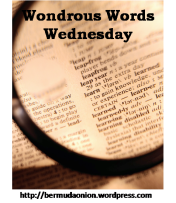Author: Peter DeMarco
Publisher: Pangea Books
Publication Date: November 12, 2012
Source: e-copy provided by the author for an honest review
Plot Summary from Goodreads:
Troubled young suburbanite Henry Walker is on a one-man mission to clean up his town, protect his property, and chase after fantasies of a better life ahead. From an alienated adolescent to a frustrated young adult, Henry encounters one disappointment after another. While suffering the loss of close family members and friends, desperately seeking companionship in the form of unconventional friendships, and becoming a victim of extreme bullying and violence, Henry ultimately becomes an outcast in the only town he knows. As Henry immerses himself in his past, memories become guilt, guilt becomes regret, and regret becomes obsession—until violence seems to be the only logical response.
Written as a collection of interwoven short stories, told in sparse, piercing prose, this haunting novel examines Henry Walker’s transformation from the misfit and the victim— to vengeful retaliator. But does the justice he metes out make him a popular hero or an enemy of the people? In razor-sharp prose reminiscent of Haruki Murakami, Peter DeMarco startles the mind while touching the heart.
My Review:
When Peter DeMarco asked if I'd be interested in reviewing Background Noise, I read the description and immediately was intrigued. Yes, it sounded dark and depressing--but it also included an interesting psychological bent that roped me in. I don't like dark-and-depressing just for the sake of being dark-and-depressing, but I DO like books that explore the mental journeys that characters make to get to that point.
Background Noise is more novella than novel--I read it in less than a day. It's a compliation of short stories that transcribe the turbulent life of Henry Walker from his early teenage years, through his mid-thirties. This is not a book for the faint of heart--from the start, vulgarity and violence play primary roles in Henry's life. However, those elements serve as important clues for the reader, as you witness Henry's psychological declines and try to figure out where it all went wrong for him. Was it because he was bullied in school? Because his parents died when he was so young? Because of a head injury he suffered as a boy? You'll never pin down one answer, of course, but the sum of these tragedies is the subconcious mystery of Henry Walker.
Although it is difficult to blame any one thing for Henry's downfall, the book does highlight a recurring idea that Henry was left to "fall through the cracks," so to speak, of traditional society. As a child, he would act out, but his behavior was often given a pass because his parents died, and he was thus shuffled from caretaker to caretaker. As a result, his often-odd and sometimes-disturbing acts are rarely encountered with any resistance from authority. This idea was illustrated well in his adult years in the chapter "The Commuter", when Henry takes on the role of a commuting worker into New York City, despite not having a real job there: "Sometimes I walk into random office buildings, take the elevator up, punch a button, and walk through office space as if I had a purpose. Nobody ever says anything." By the end of the book, this seemingly innocuous scene takes on a more frightening meaning, as you realize the mentally-disturbed Henry faded so easily into the background (noise?) of everyone else's life. He could easily be your reclusive next door neighbor, or the guy sitting behind you on the train. SKEEVY.
I enjoyed this novella the way you'd enjoy Burgess's Clockwork Orange, or Bradbury's Fahrenheit 451: not as a fun, carefree reading romp, but as a morose and foreboding tale that leaves you feeling one part sympathetic for our psychologically-disturbed-but-societally-ignored narrator, and one part horrified at the violence he is able to commit. Background Noise is a literary psychological profile that leaves me feeling like I need to read it again, just to get a better understanding of who Henry is and where he is going.
My one downside for this book: the illustrations. I didn't think that they added much to the story, and if anything, they made it feel a bit amateurish. The words in this novel speak for themselves, without the need for visual aid.
If you're looking for a short read that packs a big punch (and you don't mind the vulgarity/violence), Background Noise is a good bet. I don't read a lot of novellas, but I'm glad I took a chance on this one.
What say you, readers? What are some of the best novellas you've read lately?



















